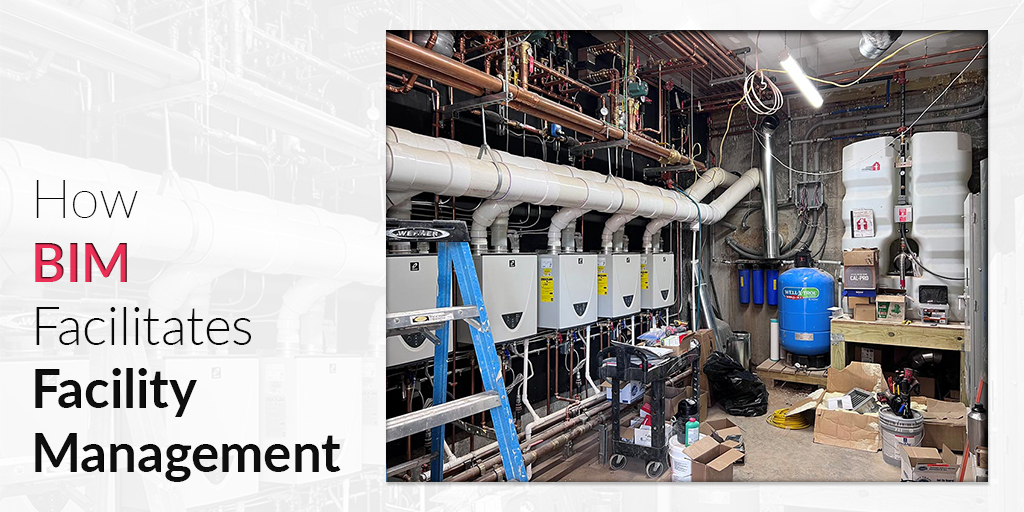Facility Management-- Streamlined Workflow and Expense Financial Savings
Facility Management-- Streamlined Workflow and Expense Financial Savings
Blog Article
Key Patterns Forming the Future of Center Management in 2024
As we look in advance to 2024, the landscape of facility administration is poised for substantial makeover, driven by a number of essential trends. The assimilation of clever building innovations and a shift in the direction of data-driven decision-making pledge to improve operational performance while prioritizing sustainability in method.
Smart Structure Technologies

Smart building technologies include a large range of systems, consisting of intelligent lighting, cooling and heating controls, and protection systems. By integrating these systems, center managers can check and change parameters in real-time, causing substantial reductions in energy waste and operational prices. As an example, smart sensors can detect tenancy degrees and readjust lighting and temperature accordingly, making sure that energy is just used when needed.
In addition, these innovations promote improved information collection, enabling companies to track usage patterns and identify chances for additional enhancements. The execution of smart structure modern technologies not just contributes to sustainability goals yet likewise creates much healthier job atmospheres that can increase staff member efficiency and contentment.
As we relocate into 2024, the fostering of smart structure innovations will likely accelerate, mirroring a wider change towards even more intelligent, receptive, and sustainable center management methods.
Data-Driven Decision Making
Significantly, organizations are leveraging data-driven choice making to enhance facility management methods. By utilizing information analytics, facility managers can acquire actionable understandings that substantially boost operational effectiveness and source allotment. The assimilation of advanced innovations, such as IoT sensing units and real-time monitoring systems, allows the collection of substantial amounts of data on structure efficiency, occupancy rates, and energy intake.
This wide range of information enables center supervisors to identify trends, forecast upkeep needs, and proactively address issues before they escalate. For example, anticipating analytics can forecast equipment failures, lowering downtime and repair prices. Additionally, information visualization devices help with much better communication among stakeholders, making certain that educated choices are made collaboratively.
Additionally, data-driven approaches improve strategic planning by allowing facility supervisors to assess the efficiency of existing practices and make educated choices pertaining to financial investments in modern technology or infrastructure. As organizations progressively prioritize functional excellence, data-driven decision making is positioned to end up being a keystone of effective center administration strategies in 2024 and past. Ultimately, the capability to leverage data successfully will empower companies to produce a lot more effective, efficient, and resilient facilities.
Sustainability and Environment-friendly Practices
The focus on data-driven decision making normally aligns with the expanding concentrate on sustainability and eco-friendly techniques within center monitoring. As companies progressively prioritize ecological obligation, center managers are leveraging analytics to enhance source usage, minimize waste, and lessen carbon footprints. This calculated approach allows the combination of energy-efficient systems, such as LED lighting, smart HVAC controls, and renewable energy resources into center operations.
Furthermore, the execution of sustainable techniques expands beyond energy intake. Facility supervisors are embracing environmentally friendly products and advertising recycling efforts to develop a circular economic climate within their facilities. This not only boosts the ecological account of the company but likewise promotes a culture of sustainability amongst staff members.
Compliance with ecological guidelines is an additional important element driving the fostering of green techniques. By making use of data analytics, center managers can monitor conformity metrics and determine areas for renovation, making sure adherence to international and regional sustainability standards.
Hybrid Work Models
A significant change towards crossbreed work versions is improving the landscape of center administration in 2024. This standard integrates remote and in-office job, demanding a reevaluation of room usage, source allocation, and staff member interaction approaches. Organizations are significantly identifying the significance of adaptable offices that accommodate varied needs and preferences.
Facility managers have to adapt by executing flexible office designs that sustain collective initiatives while why not try these out offering locations for focused job. This includes the assimilation of innovation to facilitate smooth communication and cooperation among in-office and remote employees. Smart structure options, geared up with sensing units and analytics, enable real-time tracking of area use, enabling companies to maximize their atmospheres effectively.
Moreover, hybrid work versions highlight the demand for effective center administration that focuses on employee experience. In significance, the hybrid job design is revolutionizing facility monitoring, encouraging a proactive technique to fulfill the developing needs of the workforce.
Enhanced Owner Wellness
As organizations welcome hybrid job models, an increased concentrate on occupant wellness is ending up being indispensable to center administration methods. Facility Management. This change recognizes that a healthy and pleased labor force directly impacts efficiency and retention rates. Facility managers are now focusing on settings that advertise psychological and physical health, incorporating address components such as natural lights, biophilic design, and accessible wellness resources

Modern technology plays an important duty in this evolution. Smart building systems can keep track of ecological variables and adjust settings in real-time, making sure ideal convenience degrees - Facility Management. In addition, feedback mechanisms, such as occupancy sensors and worker surveys, allow facility managers to continually improve check my reference wellness initiatives based on resident requirements.

Final Thought
In 2024, the future of center administration will be considerably influenced by the integration of clever structure innovations and data-driven decision-making, promoting enhanced operational performance. These patterns collectively underscore the evolving landscape of center administration in reaction to modern obstacles and possibilities.
Facility managers are advertising and embracing environmentally friendly materials reusing initiatives to develop a round economy within their centers.A considerable shift in the direction of crossbreed work designs is reshaping the landscape of center administration in 2024.Additionally, hybrid work versions emphasize the requirement for effective facility monitoring that focuses on staff member experience.As organizations welcome hybrid job versions, an increased emphasis on passenger health is ending up being integral to center administration strategies.In 2024, the future of center management will be considerably influenced by the integration of clever building innovations and data-driven decision-making, fostering enhanced functional efficiency.
Report this page